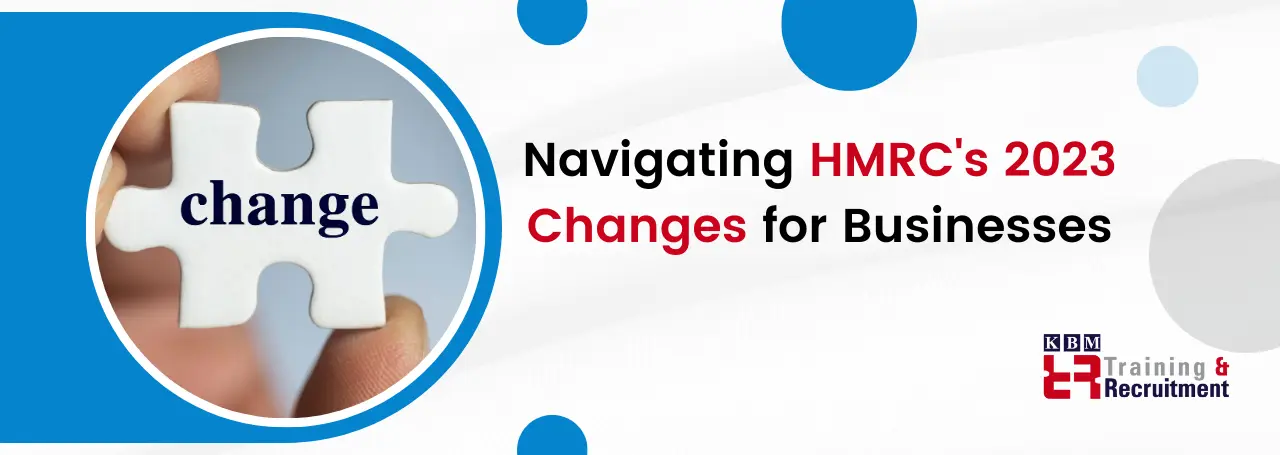As a business owner, you must stay up-to-date with the latest changes and regulations in the tax system. In 2023, HMRC has some significant changes in store for businesses that will affect how they operate. In this article, we will assist you through these changes and provide some tips on navigating them.
Introduction to HMRC
HM Revenue and Customs (HMRC) is a non-ministerial department of the UK government. HMRC is responsible for paying some forms of state support, collecting taxes, and administrating other regulatory regimes, like the national minimum wage. It is one of the largest single revenue-raising agencies in the world, with an annual revenue of over £600 billion.
HMRC constantly updates its systems and processes to ensure businesses comply with tax regulations. In 2023, there will be several changes that companies need to be aware of.
Changes in 2023
- Making Tax Digital (MTD): The UK government's initiative to digitise the UK tax system. From April 2023, all VAT-registered businesses with an annual turnover of £85,000 or more must submit their VAT returns using MTD-compatible software. It means companies can no longer raise their VAT returns through HMRC's website. Instead, they will have to use accounting software compatible with MTD.
- VAT reverse charge: From March 2023, there will be changes to the VAT reverse charge. It will affect businesses that supply or receive services in the construction industry. Under the VAT reverse charge, the customer (rather than the supplier) will be responsible for accounting for VAT on a transaction. It means the customer must pay the VAT directly to HMRC rather than the supplier.
- Changes to IR35: IR35 is tax legislation that prevents tax avoidance by workers who provide services through an intermediary, like a limited company, but who would be an employee if there is no intermediary? From April 2023, changes will be made to IR35 that will affect medium and large-sized businesses. These businesses will be responsible for determining the employment status of their contractors and freelancers.
How does Accounting Software help comply with HMRC?
As a business owner, ensuring compliance with HM Revenue and Customs (HMRC) is crucial. Filing taxes accurately and on time is a legal obligation; failure to do so can lead to costly penalties. Luckily, software solutions are available to help make the process easier and more efficient.
Two popular options are QuickBooks and Sage. QuickBooks is a cloud accounting software enabling businesses to manage their finances from anywhere, anytime. It has features like invoicing, expense tracking, and tax preparation.
With QuickBooks, businesses can quickly generate reports and export data directly to HMRC, ensuring compliance with tax regulations. The software also provides real-time insights into business performance, helping owners make informed decisions.
Sage is another popular accounting software offering various features designed to simplify financial management. Like QuickBooks, Sage enables businesses to generate reports and file taxes directly with HMRC. It includes tools for invoicing, inventory management, and payroll processing. Additionally, Sage offers integrations with third-party apps such as Stripe and PayPal, giving companies even more flexibility in managing their finances.
Both QuickBooks and Sage are user-friendly and designed to streamline financial management tasks. They offer robust features that allow businesses to track expenses, monitor cash flow, and make informed decisions based on real-time data. Furthermore, they prioritise compliance with HMRC regulations, making tax filing more manageable and stress-free.
Common mistakes to avoid
With so many changes coming in 2023, it can be easy for businesses to make mistakes. Here are some common mistakes to avoid:
- Not preparing for MTD: If you are a VAT-registered business with an annual turnover of £85,000 or more, you must prepare for MTD. It means you must find accounting software compatible with MTD and ensure your staff training to use it.
- Not understanding the VAT reverse charge: If you supply or receive services in the construction industry, you will need to understand the VAT reverse charge. You must ensure that your invoices comply with the new rules and that your account for VAT is correct.
- Not reviewing your IR35 status: If you use contractors or freelancers, check their IR35 status. It means determining whether they are employees or self-employed and ensuring that they pay the correct tax.
Final thoughts
The changes HMRC has in store for businesses in 2023 will require careful consideration and planning. Companies must prepare for MTD, understand the VAT reverse charge, and review their IR35 status. Fortunately, many resources are available to assist businesses in navigating these changes, including accounting software providers, professional advisors, and HMRC. By staying informed and taking proactive steps, companies can ensure that they comply with the latest regulations and thrive in a changing tax landscape.
QuickBooks and Sage are excellent options for businesses seeking HMRC compliance and streamlined financial management. Their user-friendly interfaces and powerful features offer a range of benefits that can help enterprises save time and money alongside staying compliant with tax regulations. Whether you choose QuickBooks or Sage, both options will enhance your financial management capabilities and help you achieve your business goals.






















